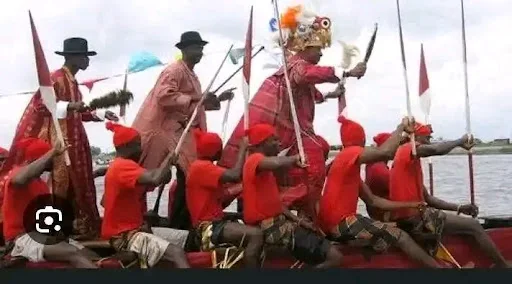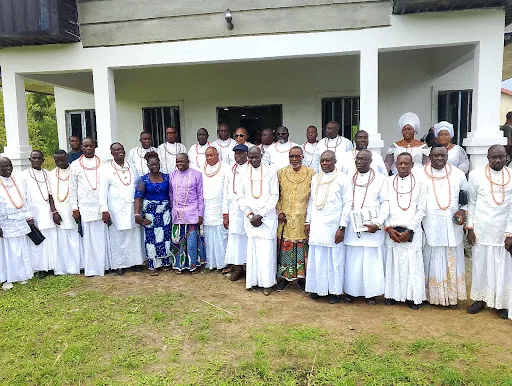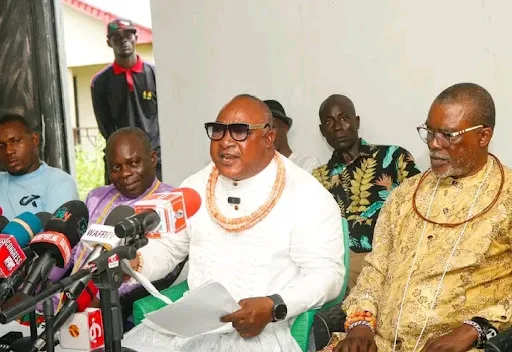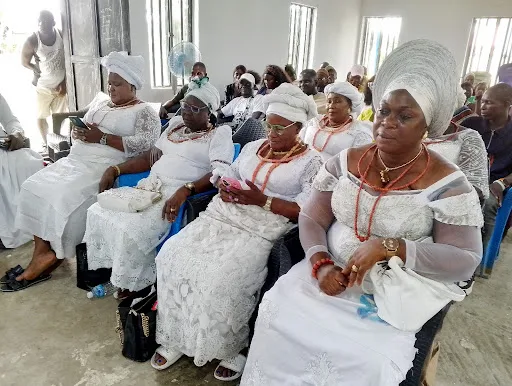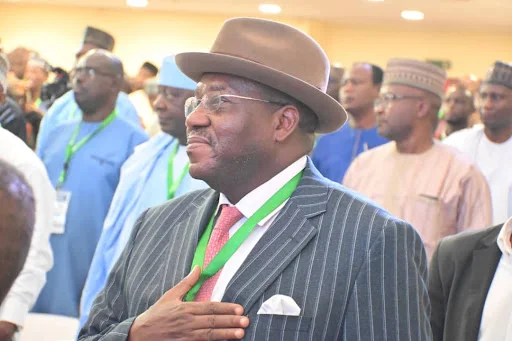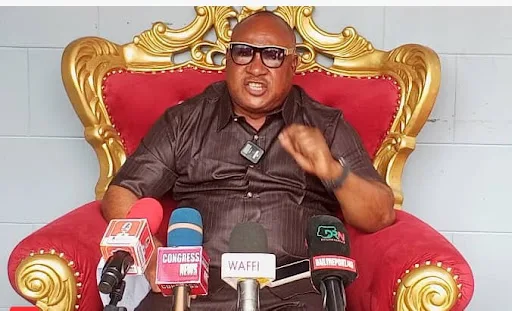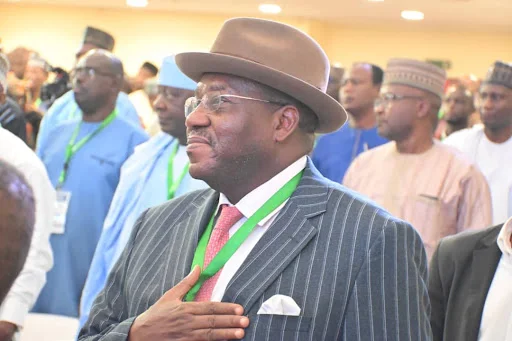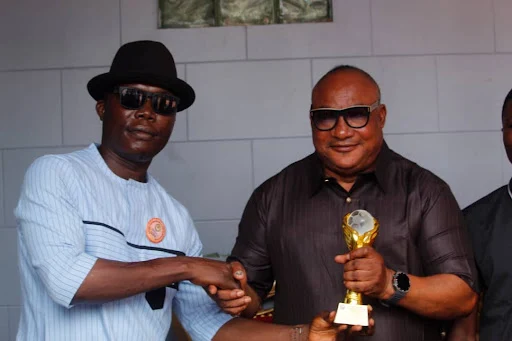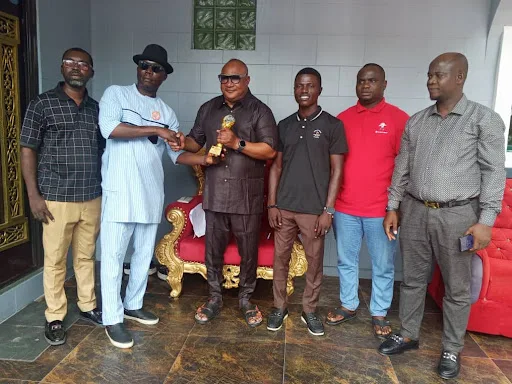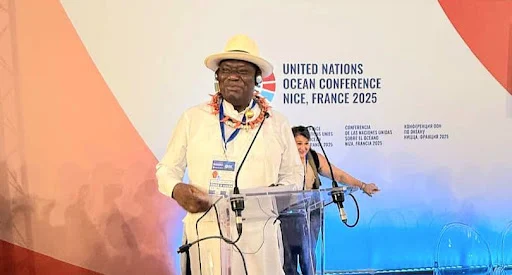From Tompolo shockers have also come to Nigeria but these shockers vary in their categories and weights. Among many recorded shockers, campaigning for President Tinubu 'morning yet on creation day' is the greatest shocker from Tompolo. Many Nigerians are still in shock over Tompolo's swift morning steps on this path. Must a president who has failed the Niger Delta in designated areas be campaigned for when dawn is still being awaited? Is this the Tompolo we have always idolised, lionised, deified, hero-worshipped and appauded for in every move he makes in the Niger Delta? Could this be the end of Tompolo's mystique and relevance?
Tompolo actually saw hell during the government of President Muhammadu Buhari. He was lied against, ostracised and hunted 24 hours . He lost many valuable things.His own waterfront in Warri was occupied by navy personnell and many valuable items disappeared from the waterfront. Above all the ordeal he was subjected to because of his genuine agitation for development in the Niger Delta, he lost his own father to soldiers who maltreated him in the guise of searching for Tompolo.
No loss can be greater than the loss of one's dear father. What about the ordeal the entire Gbaramatu Kingdom was subjected to like condemned criminals?Majorly , Tompolo led an imposed forest life .Tompolo was like Daniel Defoe's Robinson Crusoe on a strange island after a shipwreck. In Tompolo's case the Nigerian national ship captained by President Buhari got shipwrecked, masterminded by deadly detractors. Shipwrecked, Tompolo had to labour for survival when the captain of the ship had been brainwashed to hunt him down for no just cause.
It was believed the vindictive search for Tompolo would continue without abatement like a wild forest fire occasionally experienced in Akparemogbene forest. There were key issues Tompolo had often believed passionately and advocated for. Issues like the proper management of the Presidential Amnesty Programme', the establishment of the Maritime University, Okerenkoko, management of maritime security towards eradication of oil theft and pipeline vandalism and the exploitation and underdevelopment of the Niger Delta. These are core development issues that often underpin the agitation of Tompolo. Through agitation, Tompolo channelled all his resources towards the attainment of developmentally meaningful attention to these issues from the appropriate government institutions.
The 2009 PAP credited to late President Musa Yar Adua was specifically created to move Tompolo away from the forest to work in partnership with the Federal Government of Nigeria to address the Niger Delta problems.
With the coming to power of President Bola Ahmed Tinubu, many thought it was time for Tompolo to embrace his Robinson Crusoe life in the forest again because the president was another creation from the APC government. To the shock of all, President Tinubu showed amazing familiarity with the roots of the Niger Delta problems. In demonstration of his excellent understanding of the Niger Delta problem, he quickly created the space for Tompolo to handle the Niger Delta security through TANTITA Security Services Limited. Today TANTITA has efficiently tackled crude oil theft and pipeline vandalism in the Niger Delta, resulting in high productivity for Nigeria in crude oil production.Tinubu had long been applauded for this approach to maritime security in the Niger Delta.
President Tinubu did not only stop at creating the space for Tompolo to be engaged in maritime security; he also signed into law the bill for the establishment of the Maritime University, Okerenkoko.This alone is commendable because it is among the core issues Tompolo had committed all his resources to over the years in agitation. Tinubu went further to appoint Dr Dennis Otuaro as the Administrator of the Presidential Amnesty Programme.
The PAP which has today produced deadly detractors and self-acclaimed emperors was brought into existence purely because of Tompolo's genuine agitation for development. Without Tompolo, there wouldn't have been PAP. This means all beneficiaries of PAP should be eternally grateful to Tompolo instead of strategising to denigrate High Chief Dr Tompolo and Chief Dr Otuaro. This is the first time the man for whom PAP was created has been fully integrated into the system; yet some idiots wouldn't want the PAP boss to succeed by marketing wrong narratives on the performance of Dr Otuaro and the genuine moves of Dr Tompolo. However Tompolo is deliberately denigrated by idiots, the world knows that the time has come for Tompolo to reap the fruits of his agitation and so he should be left alone to test his vision for the Niger Delta.
Tompolo's campaign for Tinubu is not a product of syncophancy. The world knows a syncophant by his steps. Tinubu has programmes upon which someone can campaign vigorously for him. Tompolo has failed no one. He is merely showing the Ijaw spirit of gratitude, truth, honesty, firmness, boldness and reciprocity. The impetuous thinkers calling out Tompolo for campaigning for Tinnubu would be epistemologically awakened to border-cross to Tompolo's border when they know it was President Tinubu who wisely engaged the Niger Delta challenges through contractual and appointive engagement of Tompolo and Otuaro besides his notable achievements in key areas of Nigeria's economy. Their epistemological awakening and border-crosssing will be doubled when they know that within two years of Tinubu's government over $50 billion foreign direct investment commitments have been perfected, N70,000 minimum wage payment for civil servants secured, net foreign exchange reserves increased from $3.99 billion to $23.11 billion between 2023 and 2024, over $8 billion investments in oil and gas perfected, five new regional development commissions created, over $800 million got from processing investments in solid minerals development in 2024, the extermination of over 13,500 terrorists, GDP growth of 3.84 percent seen as the highest in three years, over 440 current road projects and over 2,700 kilometre of super highways in progress, the clearance of over $10 foreign debt, the payment of over 900,000 beneficiaries from the Presidential Loan and Grant Scheme, the payment of over three hundred thousand beneficiaries of Students Loan Scheme and the the birth of four new notable Tax Bills.
One good turn deserves another. If President Tinubu has actually addressed the core issues that bothered Tompolo over the years, it is only natural that Tompolo should be reciprocally good to President Tinubu in corresponding terms. Ijaw people are naturally grateful for anything somebody does for them. If Tompolo is on a vigorous campaign for President Tinubu's return journey in 2027, Tompolo is on the right course. Tompolo should even border-cross to any country in the world and campaign for Tinubu if it is geared towards the electoral victory of the president.That Tompolo anchors a vigorous campaign for Tinubu to prepare the ground for his electoral victory in 2027 does no harm to Tompolo's mystique and relevance, neither does it ridicule the principles held by Tompolo for which he is always respected by people in Nigeria and beyond. Only a 'kalabatic' man would crucify Tompolo for his reciprocal campaign for Tinubu, as King Robert Ebizimor would always say. Because Tompolo is not a 'kalabatic' man, he will always deploy his platform to drum up support for Tinubu in the spirit of gratitude as a true blood of Ijaw no matter what ignoramuses may say.
Tinubu tackled the core Niger Delta issues rightly as soon as he came to office and this had been the agel-ong agitation and desire of Tompolo.It was like someone bringing a truckload of water to extinguish a conflagration. Tompolo's freedom agitations were like a conflagration but President has intelligently killed the conflagration. Fire flares and burns no more when it is quenched with a jet of waters. Do people still expect Tompolo to agitate when the conflagration has been doused? Tompolo needs no cautioning for being the anchor of a vigorous campaign for President Tinubu in 2027 because his stand is an echo of gratitude reciprocally shown to Tinubu for approaching the Niger Delta issues from the right angle without yielding to teleguided instigations that President Buhari mistakenly fell into in his days. Tinubu can fly politically like the eagle long as he understands the core problems of Niger Delta and implements policies that guarantee the happiness of the ordinary Nigerians whose demand from their rulers often centres on good governance.
Ekanpou writes from Akparemogbene, Delta State.




